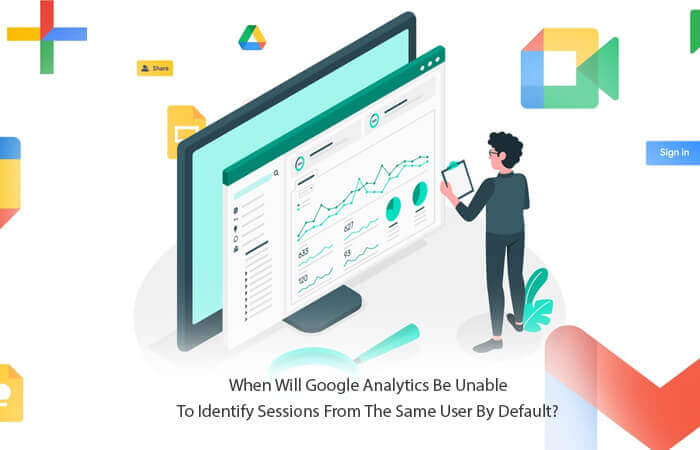Would you like to know When will Google Analytics be Unable to Identify Sessions from the Same User by Default? Read this blog post till the end.
In the realm of digital marketing and website analytics, Google Analytics stands as a cornerstone tool for tracking website traffic and user behavior.
Recently, an important shift has been announced that will impact the way Google Analytics identifies sessions from the same user by default.
In this blog post, we will delve into When will Google Analytics be Unable to Identify Sessions from the Same User by Default, its motivations, and its implications for website owners and marketers.
The Current State of Google Analytics
Currently, Google Analytics relies on default settings that use cookies and user engagement to identify sessions.
Each session is attributed to a specific user based on their interactions with the website. This approach has provided valuable insights into user behavior and engagement.
The Need for Change
In an evolving landscape of user privacy expectations and data protection regulations, the need for change has become apparent.
Users are increasingly concerned about how their data is collected and utilized.
The current method of session identification, although effective for analytics, may compromise user anonymity and privacy.
The Privacy Concerns
As the digital world advances, so do concerns about privacy and data protection.
The current default method of identifying sessions could potentially reveal more about individual users than they are comfortable with.
This poses a challenge for businesses striving to respect user privacy while still gathering essential data for marketing and analytics purposes.
Google’s Response: Default Changes
In response to the growing need for enhanced user privacy, Google is changing the default session identification method.
This change is aimed at aligning Google Analytics with evolving industry standards and user expectations.
With this update, Google aims to ensure that user data is treated with utmost respect and protection.
Implications for Website Owners and Marketers
The change in default settings will have implications for website analytics and reporting.
Marketers will need to adjust their strategies to accommodate the new identification method.
This may pose challenges in accurately tracking user behavior and engagement across sessions.
User-Centric Tracking Solutions
In light of the changing default settings, it’s important to explore alternative tracking methods that prioritize user consent and privacy.
Solutions such as first-party cookies and user-centric tracking techniques can help strike a balance between data collection and user privacy.
Preparing for the Change
Website owners and marketers should be proactive in preparing for the impending change.
Communication with stakeholders and team members is crucial to ensure a smooth transition.
Additionally, staying informed about best practices for responsible data tracking and analysis will be essential.
Future of Analytics and Privacy
The move towards enhanced user privacy is likely to continue shaping the future of digital marketing and analytics.
As user expectations evolve and data protection regulations tighten, businesses must be prepared to adapt and innovate while maintaining effective tracking and analysis methods.
Conclusion
We hope after reading this blog post, you are informed about When will Google Analytics be Unable to Identify Sessions from the Same User by Default.
The impending change in Google Analytics’ default session identification method marks a significant step towards respecting user privacy and data protection.
As the digital landscape continues to evolve, businesses must find ways to navigate the intersection of data analytics and user privacy responsibly.
By understanding the motivations behind these changes and taking proactive steps to adapt, website owners and marketers can continue to glean valuable insights while safeguarding user trust.
If you want to join DIDM’s digital marketing training program, dial +91 8800505151 today.
Read More : How to Block Someone On LinkedIn Without Visiting Their Profile?



